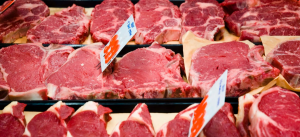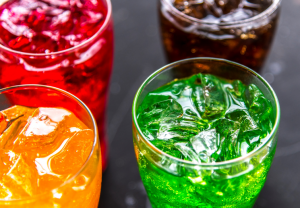How reduced CO2 in the pandemic is impacting the food and beverage industry
By Greg Williams, Senior Energy Advisor
The temperature is warming and this is the time of year when most Americans enjoy firing up their grills and drinking an ice cold soda. For now our big backyard barbecue parties are temporarily paused and our summer dining may be significantly changed as a result of COVID-19.
In addition to coronavirus cramping our respective lifestyles, an obscure effect of this virus is a dire shortage to our nation’s ethanol supply. How? Because a key ingredient in gasoline is ethanol and people are now driving less so less fuel needs to be made. In fact, there has been a 50% decline in gasoline consumption this year as opposed to May 2019. According to both the Energy Information Administration and the Renewable Fuels Association (RFA) with less vehicle miles logged means a reduction in gasoline consumption and a proportional drop in ethanol usage. Ethanol production could drop by three billion gallons for the year or 20% according to RFA. Some manufacturers have switched to hand sanitizer production, as ethanol is the active ingredient, but this is only a small percentage of total ethanol manufacturing.
A byproduct of ethanol production is commercial grade carbon dioxide (CO2). Both ethanol and CO2 are vital to the food and beverage industries. In fact, the situation has become so dire, it has prompted the Compressed Gas Association and a national coalition of several meat and beverage industries to write a letter to Vice President Mike Pence to raise awareness. In their letter, they state that COVID-19 has caused a severe drop in the production of CO2 which is important in the production, packaging, preservation, refrigeration, and marketing of everyday staples such as beer and wine, canned goods, carbonated beverages, cheeses, processed meats, and other items which are sold in our grocery stores, consumed in our homes, and enjoyed across our state and nation.
While we do not have much control over COVID-19, we certainly have control over making sure we do not experience a shortage in commercial grade CO2 which could negatively affect our nation’s food supply chain again. One thing we can do is to invest more in carbon sequestration and utilization (CCUS), which is a process that captures CO2 emissions. CCS can be introduced to capture emissions from the manufacturing process or power plants. CO2 captured can be used as a raw material to make new products or permanently stored. Putting this byproduct to work can help generate revenue while helping carve a path to permanent carbon sequestration.
In fact, the Maryland Energy Administration hosted a two-day conference last November entitled, the Future of Carbon Capture in Maryland to explore options available to the state. The same technologies that can capture CO2 from power plants and other manufacturing processes, can help secure CO2 as a valuable feedstock and improve the resiliency of our global food system by providing an alternative source of CO2. Captured CO2 can be recycled and cleaned for the meat and carbonated beverage industry. Carbon dioxide is also used in the manufacture of dry ice which is used not only to preserve food, but it has important uses in the medical industry. In addition to food and medicine, CO2 is widely used in water purification treatment and a variety of industrial applications. CO2 capture technology for the food and beverage industry is already in practice at one Maryland facility in Allegany County, Warrior Run Power Plant.
Earlier this year, Governor Larry Hogan unveiled details of bold and innovative legislation called the Clean and Renewable Energy Standard or CARES for short. A provision of that legislation embraced CCUS technology to assist with projects that find permanent solutions to CO2 storage. When enacted, CARES will set Maryland on a path to 100% clean electricity by 2040. As Governor Hogan said, it is a cleaner, smarter, and cheaper plan that protects Maryland jobs and our environment.”
So the next time you enjoy a steak dinner or drink a carbonated beverage, remember, it could not have been done without CO2 to produce, package, preserve, refrigerate, and transport.



 1-888-373-7888
1-888-373-7888 233733
233733